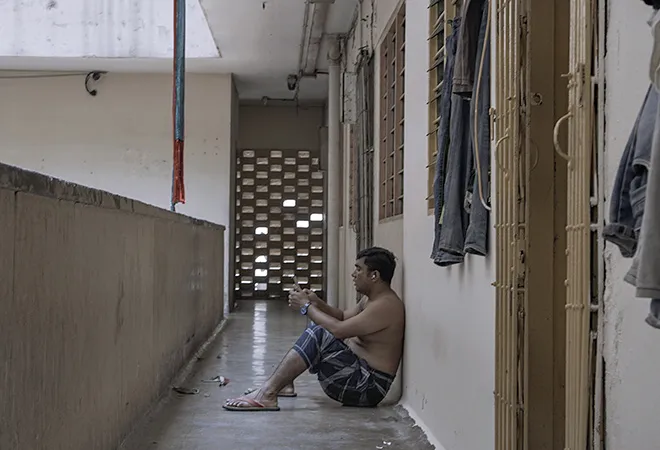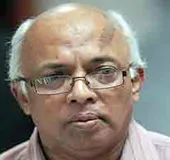
In official terms, the number of confirmed cases of coronavirus infection in Bangladesh stands at 60,391. Again, in so far as official statistics are the baseline, 811 persons have died from the disease in the country so far. These numbers apart, a fairly good number of social experts have come forth with their assessments of the figures, both in terms of contamination and death, being much higher. They could well have a point, for it is by and large the cities and towns of the country that have been in focus in the months since early March, when the government reported the first instances of Covid-19 infection in the country. Bangladesh being essentially a landscape of nearly 70,000 villages, with a majority of the national population inhabiting the rural regions, it makes sense to suppose that much of what has been happening around the coronavirus pandemic in the villages is yet to be given due attention.
Be that as it may, Covid-19 has pushed Bangladeshis into a bad situation made worse by prospects of the coronavirus persisting for the long term future. It is predictably the economy that has been laid low, despite the fact that a significant number of readymade garments factories have reopened as a measure toward recouping at least some of the losses that have already been incurred by this crucially important export industry. In recent months, the readymade garment (RMG) sector has suffered grievous blows, with foreign brands, traditional buyers of Bangladeshi garments, not only cancelling earlier orders, to the tune of $3 billion, for products but also in a number of instances staying back from payments related to products already supplied to them. No fewer than 4.1 million workers need to be paid their wages.
It is predictably the economy that has been laid low, despite the fact that a significant number of readymade garments factories have reopened as a measure toward recouping at least some of the losses that have already been incurred by this crucially important export industry.
The upshot of it all is that a very significant segment of RMG factories, despite the valiant efforts of such organisations as the Bangladesh Garment Manufacturers and Employers Association (BGMEA) to keep the industry afloat, have laid off hundreds of workers. Those workers who remain are not quite sure that they will not be shown the door at some point. In recent weeks, in connection with the Muslim religious festival of Eid-ul-Fitr, workers at scores of factories have agitated for a clearance of not just their monthly wages but also festival bonuses related to the festival. In a number of factories, the industrial police have had to be called to roll back the resultant violence.
The pressure on the government, therefore, has been unprecedented in the history of the country. At a time when it was busy touting an annual GDP growth of 8 per cent or thereabouts and the country was poised to graduate to the status of a middle income nation, the government was hit hard by the pandemic. Even so, it has with all its limited resources gone for as many as 18 stimulus packages aimed at providing relief to extremely affected sections of the population, including the garments sector. And now that the European Union has come forth with a grant of €113 million as wages for a million garments workers over the next three months, the government will certainly be seeing it as a breather.
The pressure on the government has been unprecedented in the history of the country.
Add to the economic woes of the country the return of thousands of Bangladeshi workers from West Asia and other countries. For decades, manpower export has been a major underpinning of the national economy. With the return home of these expatriate workers, the pressure only increases for the country. Matters are hardly helped by the government’s move of reopening offices, albeit through an observance of health precautions in line with WHO guidelines, and a resumption of public transport as well as railway and airline services within the country. The decision has run into criticism from political analysts and social experts, who have with justification pointed to the inadequacies which yet bedevil the health sector and who are afraid such decisions will only aggravate an already precarious situation. Testing facilities with regard to Covid-19 remain at a level that does not do justice to the 160 million-plus population of the country.
Besides, to expect citizens to maintain social distancing on public transport, when buses and other vehicles have traditionally been under huge pressure handling commuters, is a tall order. Compounding conditions is the patently crass commercialism of transport owners, who have convinced the authorities to allow them to enhance fares by 80 per cent. They had earlier asked for a 100 per cent raise. In a situation where the poor and the lower middle class, who use such public transport, are without jobs and have been having a tough time making ends meet for their families, enhanced fares can only exacerbate problems. Indeed, comparisons are being made with West Bengal, where Chief Minister Mamata Banerjee’s firm ‘no’ to transport owners’ call for a raise in fares has been looked upon appreciatively in Bangladesh.
In a situation where the poor and the lower middle class, who use such public transport, are without jobs and have been having a tough time making ends meet for their families, enhanced fares can only exacerbate problems.
The coronavirus pandemic has made casualties of doctors and other health workers as well as policemen. In recent weeks, journalists too have died from the disease. The country’s banks, especially in the private sector, which in pre-Covid times teetered on the brink of collapse, are struggling hard to stay afloat, with assistance from the government. Educational institutions remain closed, which again has been a blessing in disguise for a section of private school owners, for they have refrained from paying their staff even though teachers have been conducting online classes for their students.
The media too have been seriously affected by the pandemic, to a point where journalist unions have been asking the government to pitch in with financial assistance for journalists whose services have been terminated by their employers. The frustration for journalists, both at newspapers and the ubiquitous television channels, is made worse by the fact that prior to Covid-19 they were not paid by their management for months together. Media owners have now happily settled back on the thought that the pandemic makes it easier for them not to clear the dues of their staff.
The pace of coronavirus infections has certainly gone up in Bangladesh. Judging by the increasing numbers of deaths, even if the figures come from official sources, the country is fast proceeding to a peak. There would, therefore, hardly be any point speaking of any plateauing of conditions any time soon.
The views expressed above belong to the author(s). ORF research and analyses now available on Telegram! Click here to access our curated content — blogs, longforms and interviews.




 PREV
PREV


